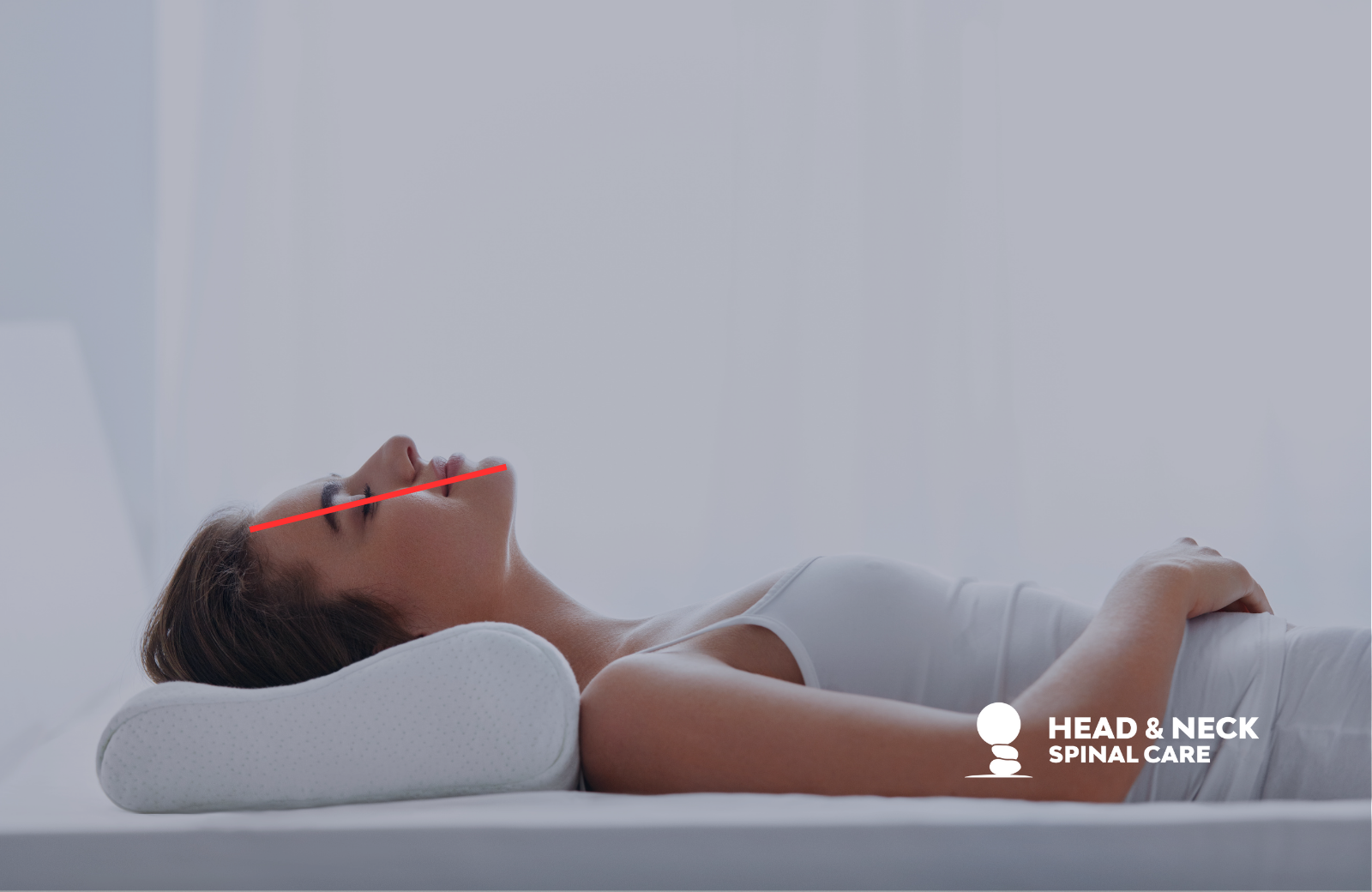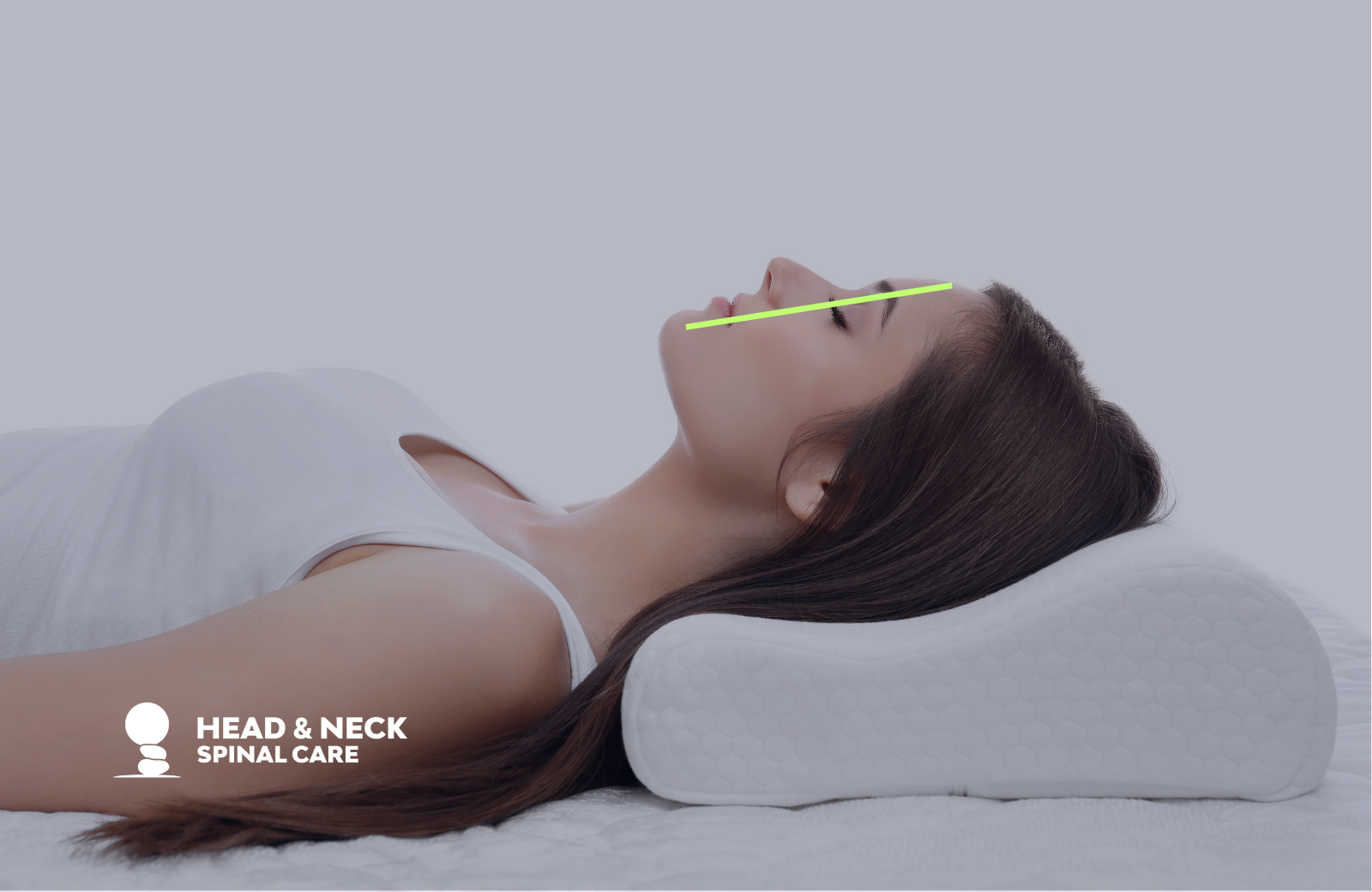
Sleeping position matters.
As we spend a significant portion of our lives sleeping, it is essential to choose a pillow and mattress that promote healthy alignment of the spine. Sleeping on your stomach, however, can lead to a range of health issues and discomforts. This position forces your head and neck to turn to one side and bend backwards, leading to strained neck muscles and misaligned spine. In addition, it can cause poor circulation and discomfort in the shoulders and arms. In this blog, we will explore how to find the best pillow to ensure a comfortable and restful sleep, while also maintaining proper spinal alignment.
The purpose of the pillow.
The purpose of a pillow when sleeping is to provide support and alignment for the head, neck, and spine. The ideal position is to maintain a straight line from the base of the skull to the tailbone, with the head resting on a supportive pillow that keeps the neck in a neutral position. This neutral position helps to prevent strain on the neck muscles and spine and can reduce the risk of developing neck pain or stiffness. Therefore, selecting the right pillow is essential to ensure a comfortable and restful sleep while also maintaining proper spinal alignment.
 Thickness matters.
Thickness matters.
It’s important to consider the thickness of your pillow when searching for the right one. A proper pillow should provide support for your head and elevate it slightly, which is the most neutral and unstressed position for your neck and spine. However, it’s crucial to avoid having your neck tilted backwards without proper evaluation. This can be risky in various ways, which could worsen any pain in your neck if you extend it for prolonged periods. It’s important to maintain a neutral position for the neck as much as possible, and avoid excessive or repetitive neck movements that can cause strain or injury.
Neck extension or tilting backward can be bad for the neck if done excessively or repeatedly, as it can put strain on the neck muscles and vertebrae. Here are a few reasons why:
- Increased pressure on the neck: When you tilt your head backward, the weight of your head is transferred to the back of the neck, which can increase the pressure on the vertebrae and muscles in that area. This can cause pain, stiffness, or even muscle strains.
- Compression of the spine: When the neck is extended, the space between the vertebrae decreases, which can compress the spinal cord and nerves in the neck. This can lead to tingling, numbness, weakness, or even nerve damage over time.
- Poor posture: Excessive neck extension or tilting backward can also contribute to poor posture, which can put additional strain on the neck, shoulders, and back. This can cause discomfort, pain, and even increase the risk of developing spinal conditions over time.
Take away.
The right pillow can make a significant difference in the quality of sleep and overall health. By providing support and alignment for the head, neck, and spine, pillows can prevent strain on the muscles and joints and reduce the risk of developing discomfort, pain, or stiffness. Moreover, selecting the right pillow can improve sleep quality, reduce the risk of developing sleep-related issues, and even provide therapeutic benefits. Therefore, taking the time to find the best pillow for your sleeping needs is worth the effort.




